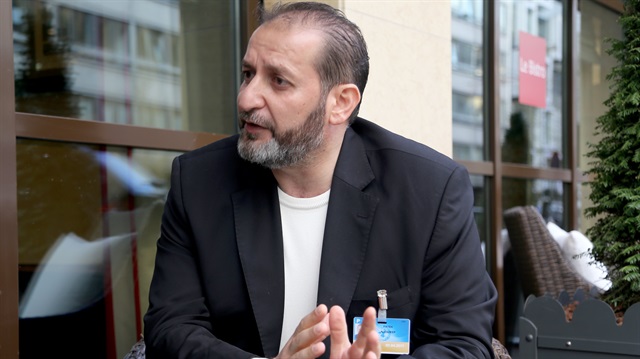

Fatih Hassun
Free Syrian Army calls for renegotiation of Russia-backed ceasefire arrangement in Homs
While Russia announced earlier this month that a ceasefire had been reached between the Free Syrian Army (FSA) and the Assad regime in the city of Homs, the FSA appears only to be represented by a single group with limited influence, according to a copy of the deal seen by an Anadolu Agency correspondent.
A “de-escalation zone” recently declared by Russia in Homs has yet to formally go into effect and the FSA reportedly wants to renegotiate the terms of the arrangement.
Speaking to Anadolu Agency last week, Fatih Hassun, the Homs representative for Syria’s opposition-run High Negotiations Committee (HNC), voiced the committee’s displeasure with Russia, which, he said, was “behaving as if it were the only guarantor country”.
Along with Russia, earlier ceasefire agreements in Syria have been guaranteed by Turkey and Iran.
An FSA statement issued late Tuesday read: “Russia tried to bring 12 trucks laden with aid into the region on Monday, but these were stopped by opposition forces that reject the [truce] agreement.”
The FSA went on to assert that the Russia-backed agreement reached earlier this month was “invalid” since it was signed only by a “single group with little influence that does not represent the opposition”.
“Negotiators representing the region’s six main opposition forces have been selected to renegotiate the treaty, especially as they pertain to liberated zones,” the statement added.
The FSA goes on to assert that local opposition groups had agreed to set a date by which to forge a new truce arrangement, with representatives chosen by the HNC tasked with negotiating a position based on “revolutionary principles”.
Moscow, for its part, has yet to officially comment on the issue.
At a fourth round of peace talks held in Kazakh capital Astana in early May, the three guarantor countries -- Turkey, Russia and Iran -- announced plans to establish a system of “de-escalation zones” throughout Syria, in which acts of aggression were to be expressly prohibited.
#ceasefire
#Free Syria Army
#Homs
#Russia






